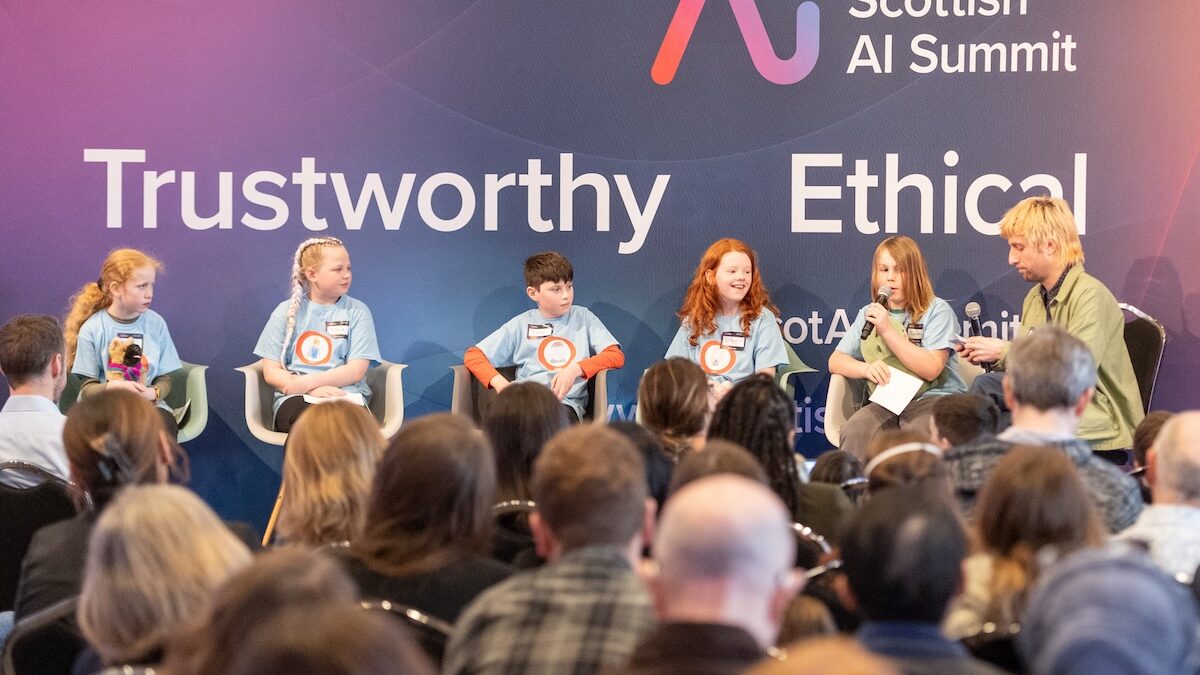A new guide is set to help adults develop safe AI systems for kids following an extensive consultation with Scottish primary schools and teachers.
The learning tool, ‘Why Children’s Rights Matter: A Resource for Professionals’, has been produced by the Children’s Parliament to influence the way the technology is being shaped for future generations.
Members of the Children’s Parliament took part in workshops with the assistance of the Scottish AI Alliance and The Alan Turing Institute (ATI) to devise a ‘right’s led’ approach to developing AI systems for children.
It is aimed at working in artificial intelligence, digital, and data spaces to understand how children’s rights intersect with AI system design and decision-making.
The project team worked with Members of Children’s Parliament (MCPs) to identify what needs to happen for AI to play a role in keeping all children healthy, and safe.
To capture as broad a range of views as possible and to reflect the diversity of experiences of children in Scotland, classes ranging from P4 to P7 in four schools across Glasgow, Edinburgh, Stirlingshire & Shetland participated.
This led to the development of the children’s 12 Calls to Action, across four themes: fairness and bias (Stirling), safety and security (Glasgow), AI in education (Edinburgh) and learning about AI (Shetland).
Among the findings were that children’s lives need to be taken into account when developing AI, companies should not be able to train AI on children’s data without them being asked, AI should support and not replace teachers, and AI should be in the curriculum.
Sandra Rabbow, AI Project Officer, Children’s Parliament, said: “Children’s Parliament is excited to launch our eLearning resource together with our partners from the SAIA and The Alan Turing Institute. The resource was developed as part of our work with children aged 8-12 years from across Scotland.
“The children had a direct call to action that adults who develop AI systems and make decisions about its use need to know about children’s human rights. The eLearning modules raise awareness about children’s human rights and the importance of the United Nations Convention on the Rights of the Child (UNCRC) in Scotland. The resource will provide a platform for sharing children’s voices—highlighting what matters to them when it comes to AI and how adults can ensure that new technologies support children’s safety and wellbeing.”
Children’s Parliament worked with four schools across the first two stages of the project, before seeking views of school staff from across Scotland, with the aim of gaining a clear understanding on how prepared and supported they feel to explore the topic of A.I with children. A national survey was conducted in May and June 2024. The survey collected the views of more than 500 school leaders, teachers and support staff, all of whom work with children up to the age of 14.
The survey gathered responses on staff confidence in their own knowledge of the subject, what support and resources they had been made aware of, and their own use of A.I. A final open question asked them for their views on the impact of A.I on children’s rights within education.




